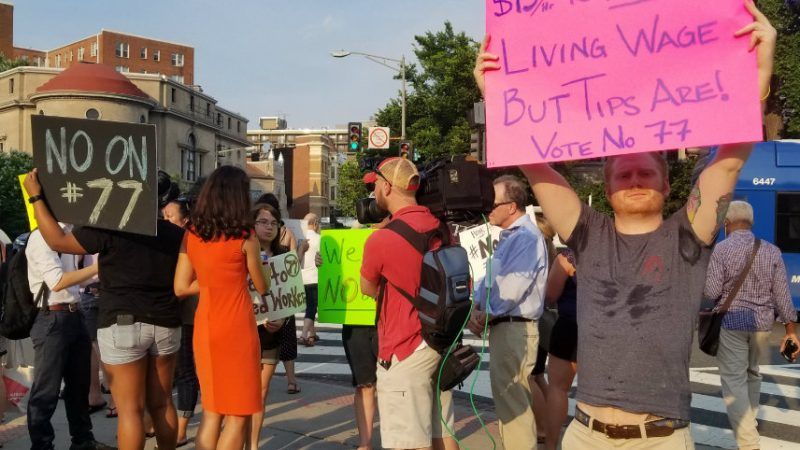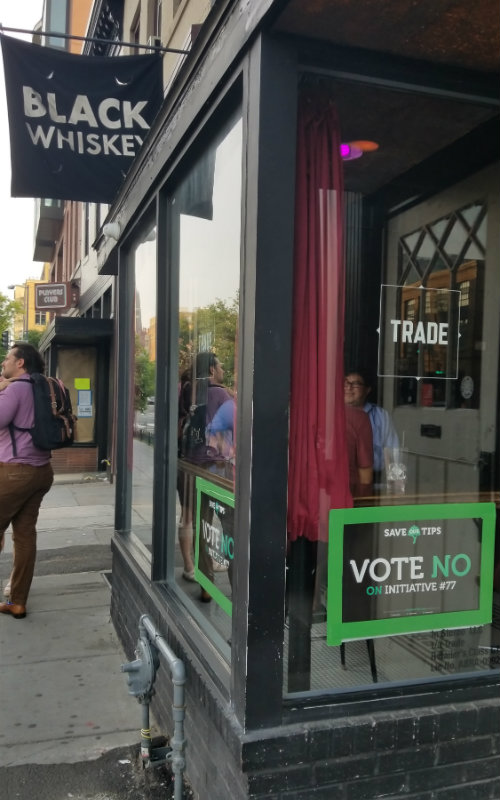D.C. Repeals a Minimum Wage Hike That Restaurant Workers Didn't Want
The poorly designed law would have left a lot of employees with less money rather than more.


When D.C. voters approved Initiative 77 in June, they thought they were giving the city's bartenders and restaurant workers a boost in the bank account. But many of those workers didn't want the law, which they didn't think would work as advertised. Today the city council answered those employees' appeals and voted 8–5 to consign Initiative 77 to the trash pile of bad policy.
Though it was served up as a progressive plan to hike wages, Initiative 77 would have actually cost many workers money. The proposal abolished the so-called "tipped minimum wage" of $3.50 cents per hour, replacing it with a $15 minimum wage for all food service workers in the city. But workers that I (and other reporters) talked to before the vote told me that they often make far more than $15 a hour, thanks to tips. Even if they don't, D.C. law required restaurant workers to make at least $12.50 an hour, with employers mandated to top-up employees' pay if they earn less than that much in tips.
Given the choice, many workers said they'd rather not earn $15 per hour at the cost of losing their tips. More than 8,000 of them sent comments to the city council urging them to repeal the measure. Mayor Muriel E. Bowser, a Democrat, has indicated she would sign the repeal.
Supporters of Initiative 77, such as the union-backed Restaurant Opportunity Center, have called the move to cancel the referendum's result "flat-out voter suppression."
Hardly. With its vote on Tuesday, the D.C. City Council did what elected officials in a representative democracy are supposed to do: act as a check. After Initiative 77 passed, one of the biggest questions was whether the Democrat-controlled city council or the Republican-controlled Congress (which has authority over policymaking in the nation's capital) would be the first to strike it down. That should say something about the merits of the proposal, as should the fact that both management and employees were on the same side of the issue.
Julia Calomaris, a server at Bistrot Du Coin on Connecticut Avenue, told me in June how frustrating it was that so many people thought the initiative would be good for restaurant workers. The ballot initiative amounted to "giving help to people who aren't asking for it," said Calomaris, who has worked in the industry for 17 years.
There were also concerns about the unintended consequences of the new tipped minimum wage, which would have raised costs for restaurants and possibly forced cuts to staff. Ryan Aston, who tends bar at the Hamilton and who helped organize workers' opposition to Initiative 77, has said he was worried about the loss of prep cooks, barbacks, and bussers.
"If the law is a bad law, it should be amended or repealed. It does not matter if the law was adopted by the council, the voters or Congress," Council Chairman Phil Mendelson, who sponsored the proposal, tells The Washington Post. He's right.


Show Comments (29)